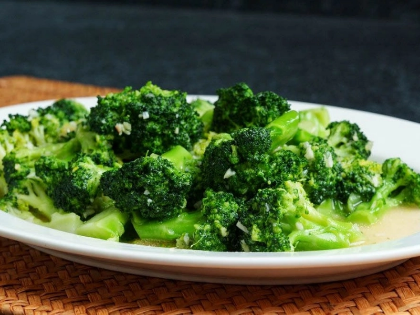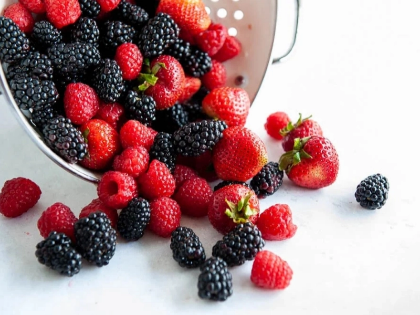How Nuts Can Help Control The Symptoms Of Arthritis
A healthy diet can help you live a better, more pain-free life with arthritis. Try including nutrient-dense foods in your meals, such as fish, leafy greens, and nuts and seeds. Steer clear of refined carbohydrates because they have a high glycaemic index and make the body more inflammatory. Eat dark-coloured berries as well since they contain anthocyanins, which may lessen joint pain.
Ingredients
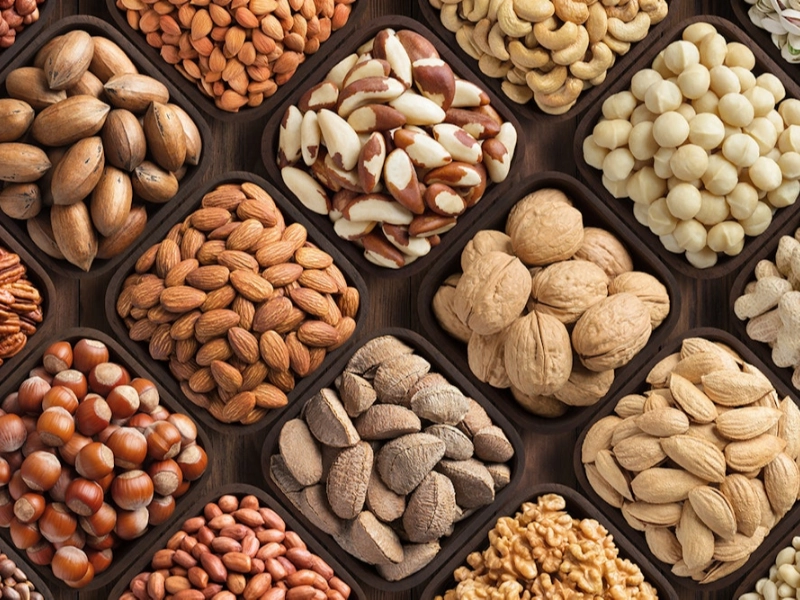
Reduced inflammatory impact
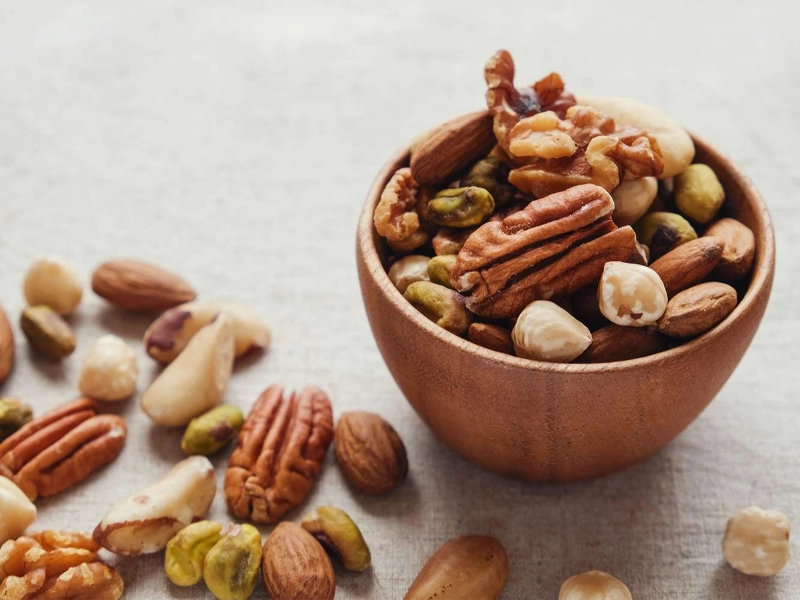 Nuts are powerful inflammatory-fighting foods. Pecans, walnuts, almonds, and pistachios are among them. Studies show a correlation between reduced blood levels of the inflammatory markers IL-6 and CRP and increased nut consumption.
Fish such as salmon, trout, and tuna, as well as chia and flaxseeds, are other foods that reduce inflammation. These have omega-3 fatty acids, which aid in the reduction of oedema. You can take an omega-3 supplement or include two or three servings of fatty fish in your diet each week.
Limiting certain oils and saturated fats has also been shown in studies to reduce inflammation. Red meat, full-fat dairy products, butter, and fried foods made with corn, sunflower, peanut, or safflower oil can all raise your intake of these fats. Try substituting olive oil or other unrefined vegetable oils for these oils.
Nuts are powerful inflammatory-fighting foods. Pecans, walnuts, almonds, and pistachios are among them. Studies show a correlation between reduced blood levels of the inflammatory markers IL-6 and CRP and increased nut consumption.
Fish such as salmon, trout, and tuna, as well as chia and flaxseeds, are other foods that reduce inflammation. These have omega-3 fatty acids, which aid in the reduction of oedema. You can take an omega-3 supplement or include two or three servings of fatty fish in your diet each week.
Limiting certain oils and saturated fats has also been shown in studies to reduce inflammation. Red meat, full-fat dairy products, butter, and fried foods made with corn, sunflower, peanut, or safflower oil can all raise your intake of these fats. Try substituting olive oil or other unrefined vegetable oils for these oils.
Fatty Acids Omega-3
 Omega-3 fatty acids are abundant in nut oils (such as those from walnuts, hazelnuts, and pistachios) and fatty fish (such as tuna, salmon, and mackerel). Unlike the solid saturated fats found in butter, these fats are plant-based and fluid at room temperature. They are called polyunsaturated fats. It has been demonstrated that these "healthy" fats lower inflammation, and they might also help lessen arthritis pain.
According to studies, eicosapentaenoic acid (EPA) and docosahexaenoic acid (DHA), two marine omega-3 fatty acids, may help stop inflammation in its tracks at the cellular level. Additionally, they inhibit the synthesis of inflammatory chemicals, which are essential to the auto-immune mechanism that results in RA.
Another powerful antioxidant with anti-inflammatory qualities is vitamin C, which is abundant in leafy greens, including collard greens, kale, and spinach. The production of collagen, a crucial structural protein that supports joint flexibility, is aided by vitamin C. It is also essential for immunological function and provides protection against oxidative damage.
Omega-3 fatty acids are abundant in nut oils (such as those from walnuts, hazelnuts, and pistachios) and fatty fish (such as tuna, salmon, and mackerel). Unlike the solid saturated fats found in butter, these fats are plant-based and fluid at room temperature. They are called polyunsaturated fats. It has been demonstrated that these "healthy" fats lower inflammation, and they might also help lessen arthritis pain.
According to studies, eicosapentaenoic acid (EPA) and docosahexaenoic acid (DHA), two marine omega-3 fatty acids, may help stop inflammation in its tracks at the cellular level. Additionally, they inhibit the synthesis of inflammatory chemicals, which are essential to the auto-immune mechanism that results in RA.
Another powerful antioxidant with anti-inflammatory qualities is vitamin C, which is abundant in leafy greens, including collard greens, kale, and spinach. The production of collagen, a crucial structural protein that supports joint flexibility, is aided by vitamin C. It is also essential for immunological function and provides protection against oxidative damage.
Fibre
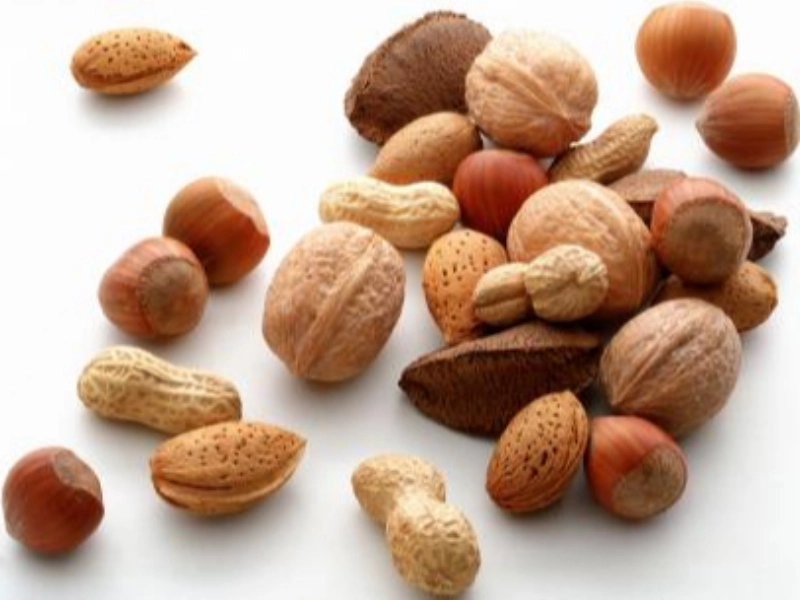 In order to control inflammation, blood sugar levels must remain steady, which is made possible by a diet high in fibre. Furthermore, fibre encourages the development of beneficial microorganisms in the digestive system.
Many RA sufferers discover that particular foods, such as gluten, dairy products, citrus fruits, and plants in the nightshade family (e.g., tomatoes and eggplant), cause rheumatoid arthritis discomfort. It is advised that people with arthritis symptoms avoid certain foods, but before doing so totally, consult your physician or a trained dietitian.
Nuts are an excellent source of Omega-3 fatty acids, calcium, magnesium, zinc, and dietary fibre. They also include a lot of antioxidants and protein. To help lessen the pain and inflammation associated with your arthritis, try adding some nuts to a salad or eating them as a snack. Nuts that are excellent providers of Omega-3 fatty acids include pistachios, walnuts, and almonds. Another nut high in nutrients that you can include in your diet are peanuts, despite the fact that they are not regarded as nuts in the botanical sense.
In order to control inflammation, blood sugar levels must remain steady, which is made possible by a diet high in fibre. Furthermore, fibre encourages the development of beneficial microorganisms in the digestive system.
Many RA sufferers discover that particular foods, such as gluten, dairy products, citrus fruits, and plants in the nightshade family (e.g., tomatoes and eggplant), cause rheumatoid arthritis discomfort. It is advised that people with arthritis symptoms avoid certain foods, but before doing so totally, consult your physician or a trained dietitian.
Nuts are an excellent source of Omega-3 fatty acids, calcium, magnesium, zinc, and dietary fibre. They also include a lot of antioxidants and protein. To help lessen the pain and inflammation associated with your arthritis, try adding some nuts to a salad or eating them as a snack. Nuts that are excellent providers of Omega-3 fatty acids include pistachios, walnuts, and almonds. Another nut high in nutrients that you can include in your diet are peanuts, despite the fact that they are not regarded as nuts in the botanical sense.



